Prenatal Chiropractic Care in Redmond
Gentle, pregnancy-specific care to ease pain, support your changing body, and help you feel more comfortable before baby arrives.
Pregnancy is incredible—but it can also be physically demanding. If you are dealing with low back pain, hip or pelvic discomfort, sciatica, or trouble sleeping, you are not alone. At Eastside Ideal Health in Redmond, we offer gentle, pregnancy-safe chiropractic care designed to help you move better, feel better, and prepare your body for birth.
Webster-certified prenatal chiropractor · Safe, gentle, and tailored to each trimester

Why Prenatal Chiropractic Care Matters
More than three out of four pregnant women experience low back, hip, or pelvic pain at some point during pregnancy. As your baby grows, your center of gravity shifts, your ligaments naturally loosen, and your posture changes to adapt. This is normal—but it can leave you feeling sore, unstable, or exhausted by the end of the day.
Prenatal chiropractic care uses gentle, pregnancy-specific techniques to support your changing body. By improving the way your spine, pelvis, and hips move together, we can often reduce pain, improve mobility, and help you feel more at home in your body as it changes.
- Low back and sacral pain that worsens with standing or walking
- Hip, groin, or pubic symphysis pain—especially when rolling over or getting out of bed
- Sciatica-type pain that radiates into the leg
- Mid-back and rib pain from posture or baby's position
- Neck pain and headaches from sleep position or screen time
Our goal is not just to "crack your back," but to support your entire movement system so you can stay as active, comfortable, and confident as possible throughout your pregnancy.

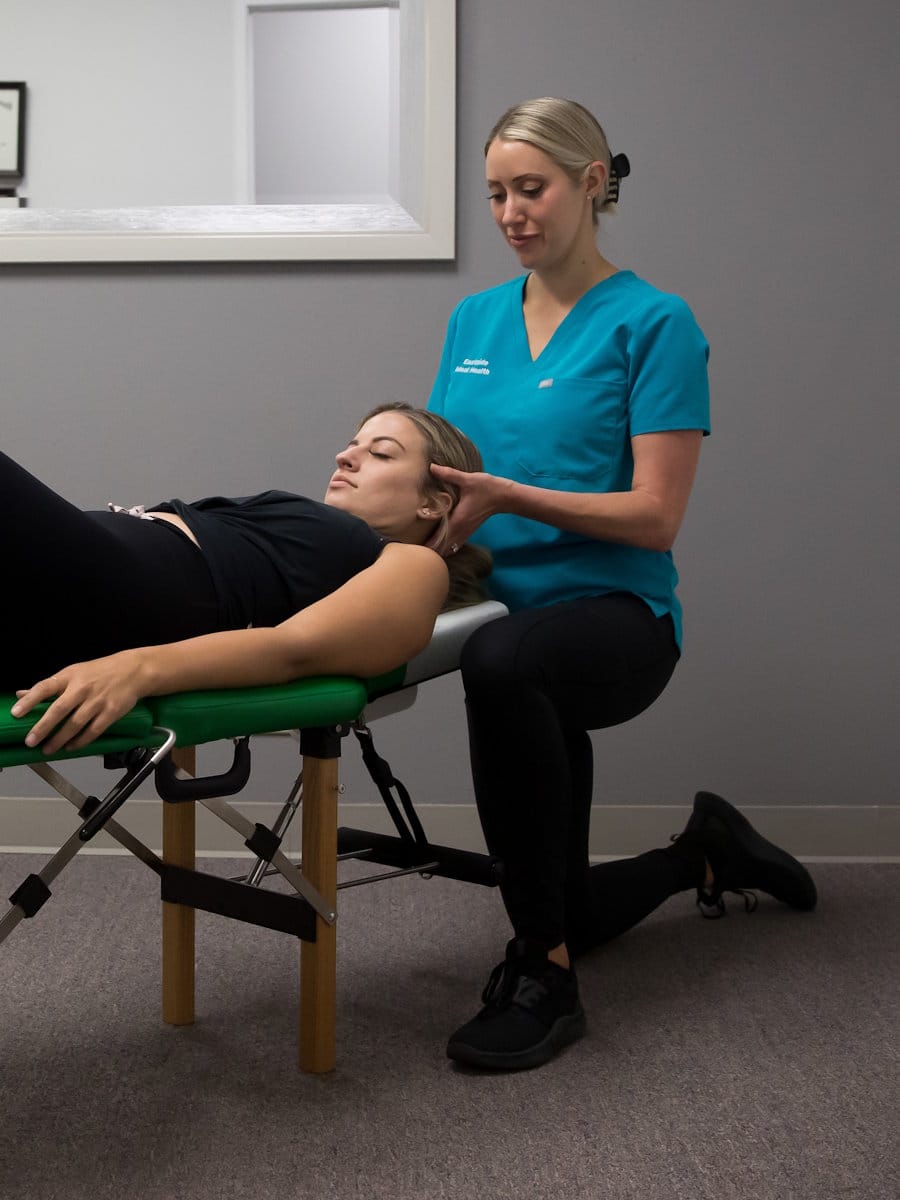
Meet Dr. Maggie Robertson, DC
Webster-Certified Prenatal Chiropractor · Holistic Nutritionist · Mom
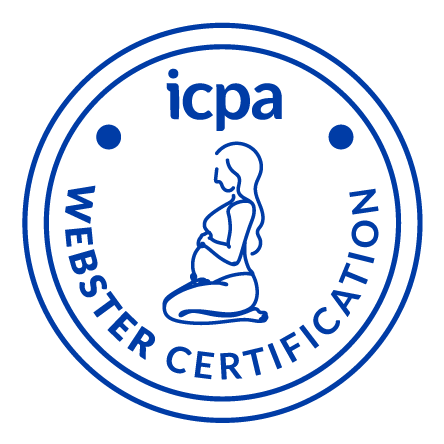
Dr. Maggie Robertson is a prenatal and family chiropractor at Eastside Ideal Health in Redmond. She holds a Bachelor of Science in pre-med, a Doctor of Chiropractic degree from University of Western States, and advanced training in Webster pregnancy and pediatric technique. She is also a certified holistic nutritionist, which allows her to support your pregnancy from a truly whole-body perspective. Find Dr. Maggie on the ICPA directory.
As a mother herself, Dr. Maggie understands how exciting and overwhelming pregnancy can be. Her approach is gentle, collaborative, and grounded in clear communication. She takes time to listen to your concerns, explain what she finds, and walk you through every step of care so you always feel informed and in control.
Whether you are in your first pregnancy or your fourth, dealing with new pain or managing discomfort that has lingered for years, Dr. Maggie will tailor your care plan to your body, your goals, and your birth preferences.
"I am absolutely thrilled with my experience with Dr. Maggie during pregnancy. She's not only highly skilled but deeply compassionate. Every adjustment helped ease the aches and kept my body aligned as things changed. Couldn't recommend her more!"
— Shannon Ragan
Is Prenatal Chiropractic Safe?
When performed by a chiropractor with pregnancy-specific training, prenatal chiropractic care is considered safe for most pregnant women. At Eastside Ideal Health, we use gentle techniques, pregnancy-specific tables and pillows, and avoid any direct pressure on your abdomen. Your comfort and your baby's safety are always the top priority.
- Webster-certified prenatal and pediatric technique
- Modified adjustments for each trimester
- No twisting maneuvers that feel aggressive or unsafe
- Pregnancy pillows and tables that support your growing belly
Before we begin care, we will review your pregnancy history, screen for red flags, and coordinate with your obstetric provider as needed.
Is Prenatal Chiropractic Care Right For Me?
You do not need to be in severe pain to benefit from prenatal chiropractic care. Many women come in because they want to stay proactive and support their bodies before discomfort becomes overwhelming.
Prenatal chiropractic care may be a good fit if:
- You are experiencing low back, hip, or pelvic pain in pregnancy
- Rolling over in bed, walking, or climbing stairs has become uncomfortable
- You want to stay as active and mobile as possible as your pregnancy progresses
- You prefer to use conservative, non-drug options whenever possible
- You would like support preparing your body for birth and postpartum recovery
If you have a high-risk pregnancy or are unsure whether chiropractic is appropriate for you, we are happy to talk with you and, if needed, coordinate with your obstetric provider.
Common Pregnancy Concerns We Help With
Low Back and Sacral Pain
A deep ache or sharp pain in your low back or sacrum that worsens with standing, walking, or lifting. Gentle adjustments and targeted soft-tissue work can help restore better movement and reduce strain.
Hip and Pelvic Girdle Pain
Pain in your hips, groin, or pubic bone—especially when rolling over, getting dressed, or climbing stairs. We focus on pelvic alignment and stability to support more comfortable movement.
Sciatica-Type Leg Pain
Radiating pain, tingling, or numbness into your leg can be related to changes in posture and joint mechanics. We work to reduce irritation and improve the way your spine and hips share the load.
Mid-Back and Rib Discomfort
As your posture shifts and your ribcage adapts, you may feel tightness between your shoulder blades or along your ribs. Gentle mobilization and posture strategies can offer significant relief.
Neck Pain and Headaches
Changing sleep positions, extra screen time, and new stressors can all impact your neck and head. We use gentle cervical techniques and give you practical strategies to reduce headaches and neck tension.
Preparing for Birth and Postpartum
Our goal is to help your body move well now and recover well later. We can support you with alignment, movement, and basic lifestyle guidance that carries through labor, delivery, and the transition into postpartum.
Care Tailored to Each Trimester
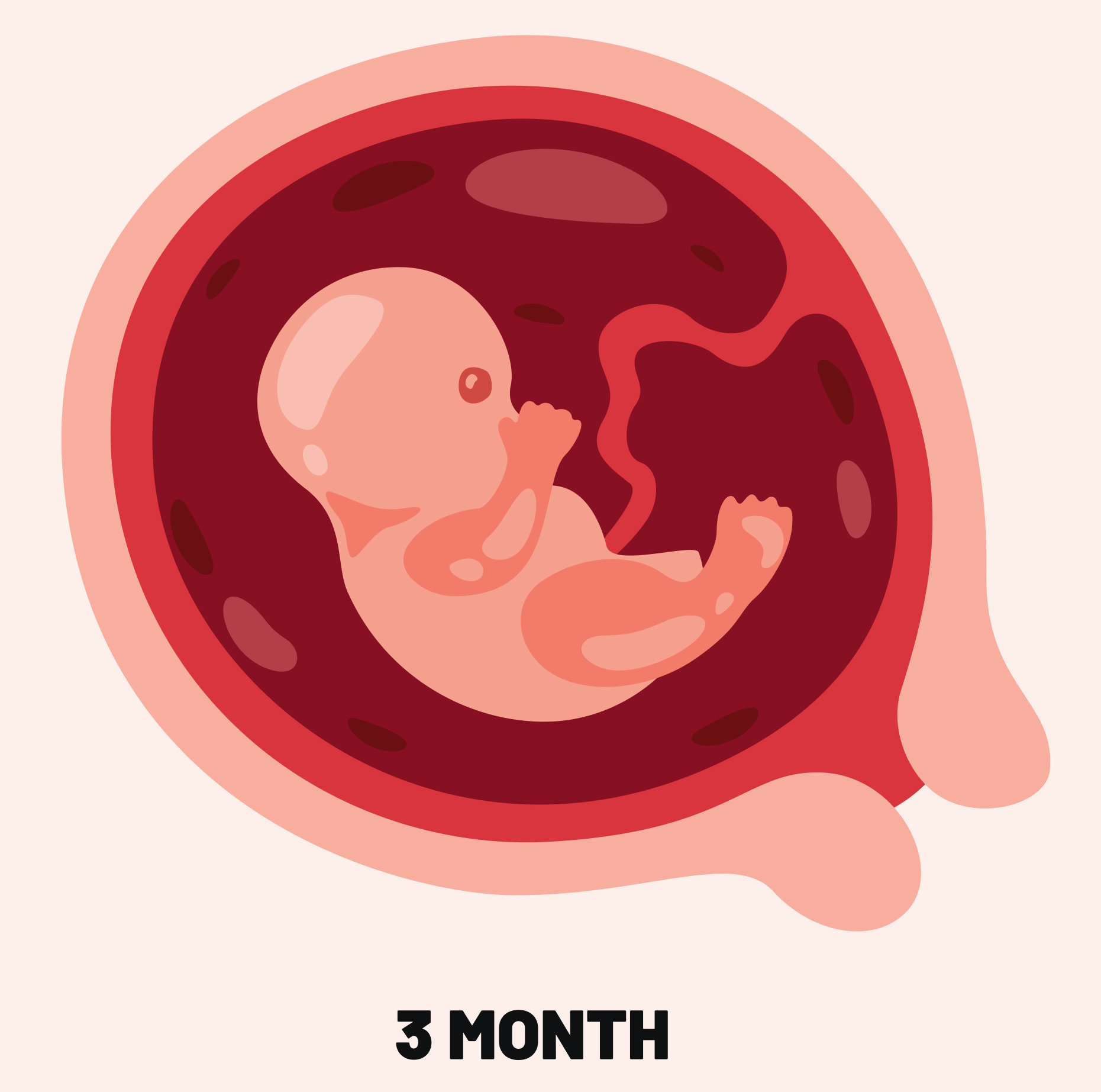
Many women in the first trimester are dealing with fatigue, nausea, and subtle aches. Our focus early on is gentle support and safety.
- Thorough history and pregnancy-specific intake
- Gentle, low-force techniques only as appropriate
- Strategies for comfortable sleep and resting positions
- Simple movement and breathing exercises to keep your body engaged without overdoing it
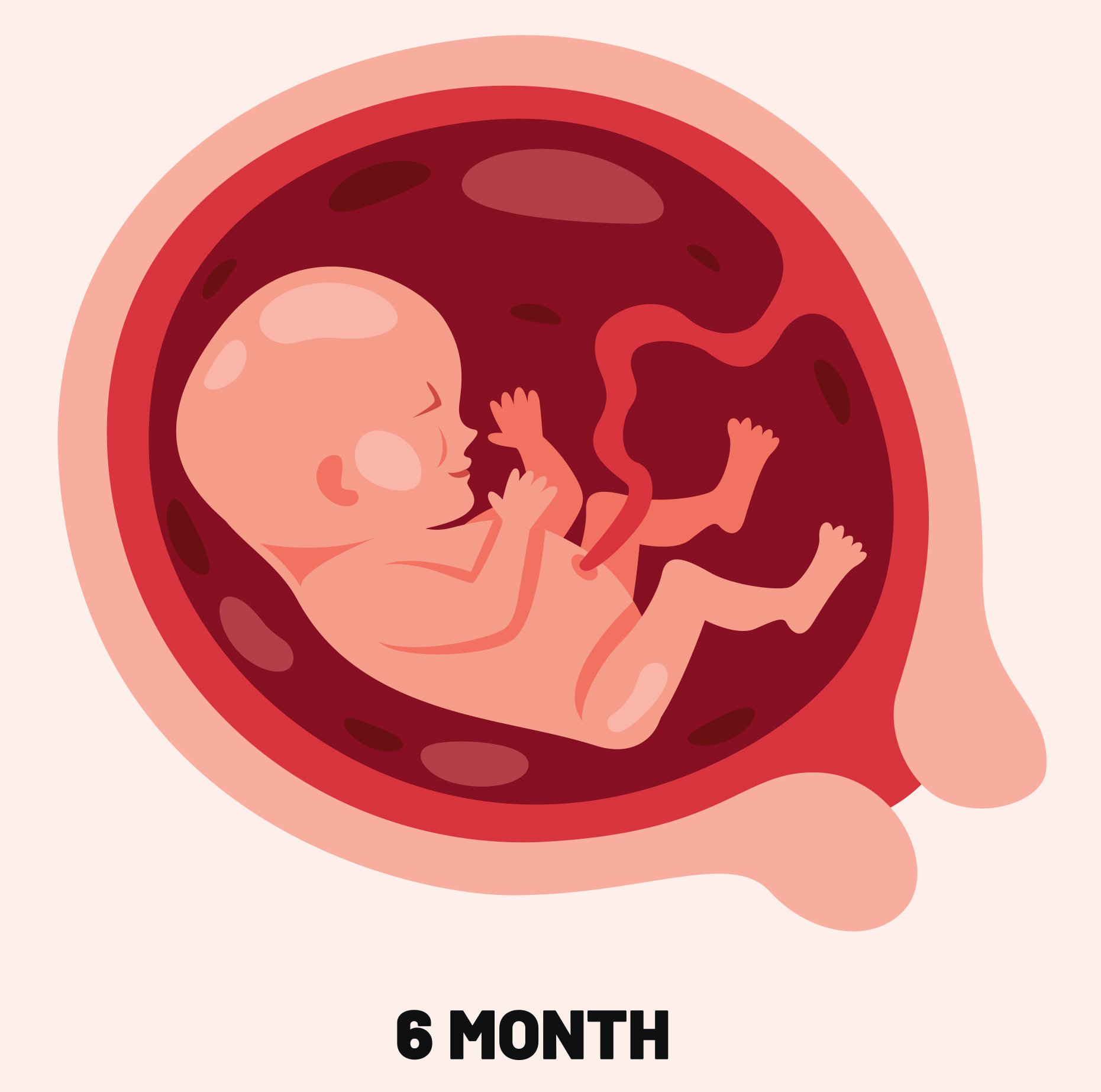
As your energy often improves and your belly begins to grow, new strains can show up in your low back, hips, and mid-back.
- Addressing low back, hip, and pelvic girdle pain as posture changes
- Supporting rib and mid-back mobility as your ribcage adapts
- Refining your daily movement habits—how you sit, stand, walk, and lift
- Building a foundation for the physical demands of late pregnancy
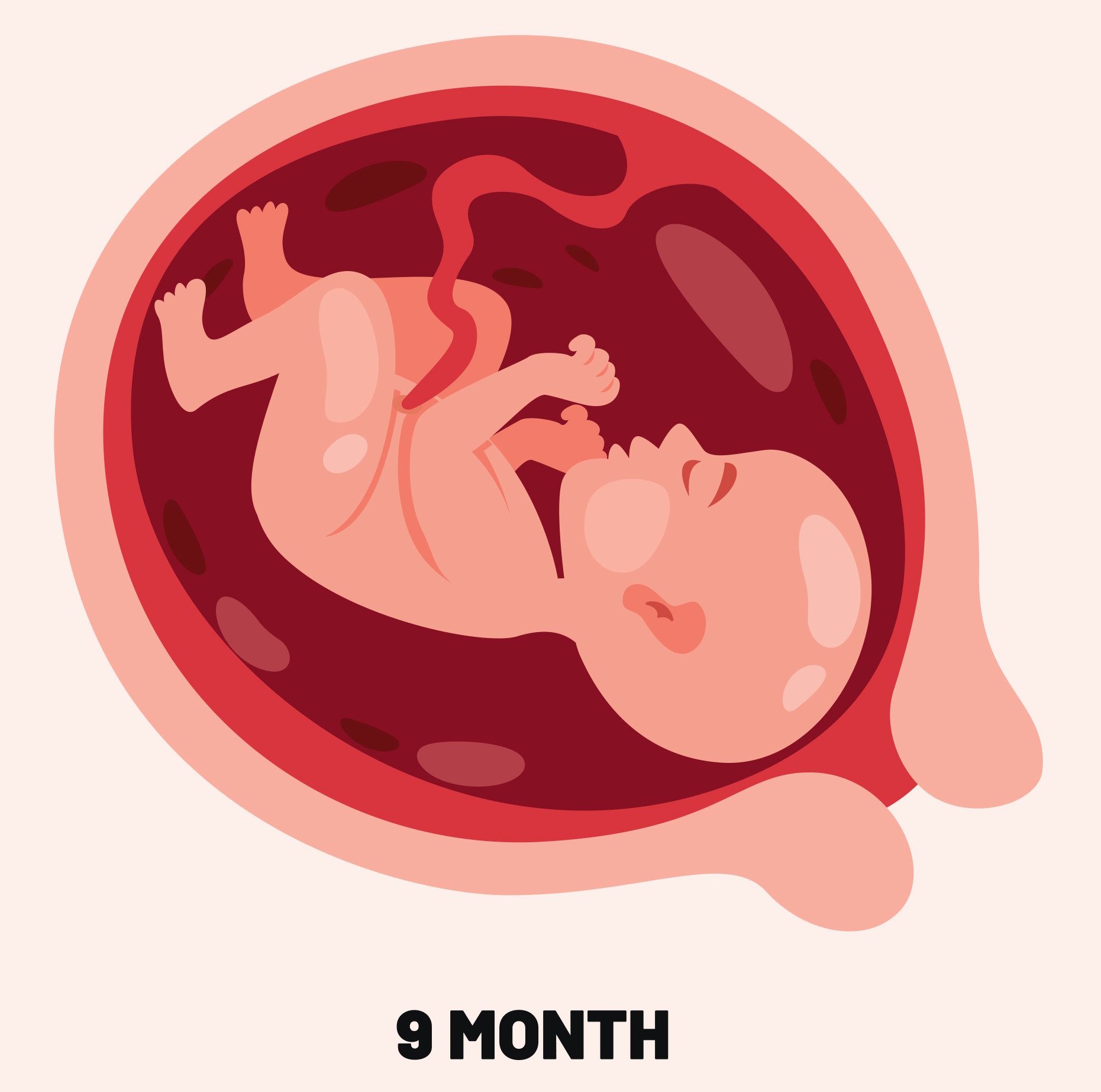
By the third trimester, comfort becomes more precious. We focus on alignment, mobility, and practical strategies that support you as you approach labor.
- Emphasis on pelvic and sacral alignment using pregnancy-specific techniques
- Comfort strategies for rolling in bed, getting up, and getting in and out of the car
- Position ideas and gentle movement to reduce strain during daily tasks
- Planning for the transition into postpartum care and recovery

Many women in the first trimester are dealing with fatigue, nausea, and subtle aches. Our focus early on is gentle support and safety.
- Thorough history and pregnancy-specific intake
- Gentle, low-force techniques only as appropriate
- Strategies for comfortable sleep and resting positions
- Simple movement and breathing exercises to keep your body engaged without overdoing it

As your energy often improves and your belly begins to grow, new strains can show up in your low back, hips, and mid-back.
- Addressing low back, hip, and pelvic girdle pain as posture changes
- Supporting rib and mid-back mobility as your ribcage adapts
- Refining your daily movement habits—how you sit, stand, walk, and lift
- Building a foundation for the physical demands of late pregnancy

By the third trimester, comfort becomes more precious. We focus on alignment, mobility, and practical strategies that support you as you approach labor.
- Emphasis on pelvic and sacral alignment using pregnancy-specific techniques
- Comfort strategies for rolling in bed, getting up, and getting in and out of the car
- Position ideas and gentle movement to reduce strain during daily tasks
- Planning for the transition into postpartum care and recovery
What to Expect at Your First Prenatal Visit
Thoughtful Conversation
We start by listening. You will share your pregnancy history, current symptoms, goals, and any concerns you have about chiropractic care.
Pregnancy-Specific Screening
We review your health and pregnancy to make sure chiropractic care is appropriate and safe. If anything needs clearance from your obstetric provider, we will talk about that first.
Gentle Movement and Posture Assessment
We look at how you stand, walk, and perform simple movements so we can understand how your spine, pelvis, and hips are working together.
Explanation and Personalized Plan
Dr. Maggie will explain what she finds in clear, simple language and outline a care plan that fits your stage of pregnancy, schedule, and goals.
First Gentle Treatment and Home Strategies
If it is safe and appropriate, you will receive your first gentle treatment the same day, along with practical tips you can start using immediately at home.
Safety First: When to Call Your OB or Labor and Delivery Instead
Chiropractic care is not a replacement for obstetric or emergency medical care. If you experience any of the following, please contact your obstetric provider or labor and delivery unit right away before scheduling or continuing chiropractic visits:
- Vaginal bleeding or a sudden gush of fluid
- Severe or worsening abdominal pain or cramping
- Fever, chills, or signs of infection
- Severe headache, changes in vision, or sudden swelling of your hands, face, or feet
- Significant decrease in your baby's movements
- Signs of preterm labor, such as regular contractions or pressure
If you are ever unsure where to start, you can call us and we will help you decide whether to contact your obstetric provider first.
Real Stories from Expectant Moms
"Dr Maggie is a joy to work with! I started seeing her during my pregnancy and the difference has been night and day. She's helped with back pain, posture, and overall comfort. I feel supported every step of the way."
— Anna Freeman"We have been coming to Eastside Ideal Health since 2021 and love the care we receive. They've helped with my pregnancy-related hip and lower back pain, and I'm moving better than I have in years. It's a supportive and welcoming environment every visit."
— Liz Keppler"Love EIH! It's easy to make appointments, and people here really care. I came in during pregnancy with tension and discomfort, and the team helped me feel better both physically and emotionally. Their holistic approach makes all the difference."
— Amy Graham"I am absolutely thrilled with my experience with Dr. Maggie during pregnancy. She's not only highly skilled but deeply compassionate. Every adjustment helped ease the aches and kept my body aligned as things changed. Couldn't recommend her more!"
— Shannon RaganOur Whole-Body Approach to Prenatal Care
Gentle, Pregnancy-Specific Adjustments
We use techniques designed for pregnant bodies, with pregnancy pillows and tables that support your belly and avoid direct abdominal pressure.
Movement and Mobility Training
We teach simple, safe exercises and movement strategies to help you sit, stand, walk, and sleep more comfortably between visits.
Holistic Lifestyle and Nutrition Guidance
Drawing on training in holistic nutrition, we can discuss foundational lifestyle habits that support your energy, recovery, and overall well-being.
Prenatal Chiropractic FAQs
Most women can start prenatal chiropractic care at any point in pregnancy, from early weeks through the third trimester. We will always review your health and pregnancy history first to make sure chiropractic care is appropriate and safe for you.
Frequency depends on your symptoms, stage of pregnancy, and how your body responds. Some women come in weekly during a painful phase, then taper to every few weeks. Others choose consistent care throughout pregnancy for ongoing support. Dr. Maggie will make a recommendation and adjust it based on how you feel.
Prenatal chiropractic care should not feel harsh or aggressive. Techniques are modified for pregnancy, and we use equipment that supports your body comfortably. You may feel gentle pressure, stretching, or light popping sounds, but you should never feel forced or unsafe.
Chiropractors trained in pregnancy-specific techniques, such as Webster, focus on the alignment and mobility of the pelvis and surrounding soft tissues. The goal is to reduce tension and create more room for your baby to move into an optimal position. While no technique can guarantee a particular position, many women choose care as part of a broader birth-prep plan.
Yes. We encourage you to let your obstetric provider know you are receiving chiropractic care. With your permission, we are happy to share information and stay in communication with your birth team so your care is coordinated.
Postpartum is a major physical transition. Many women return for postpartum chiropractic and movement support to help their bodies recover, especially if they are dealing with neck, upper back, or pelvic issues from feeding positions, lifting, and lack of sleep. We will talk about a plan that makes sense for you.
The Webster Technique is a specialized chiropractic protocol designed to support pelvic alignment, reduce soft-tissue tension, and improve overall comfort during pregnancy. It focuses on the sacrum, pelvis, and surrounding ligaments using gentle, pregnancy-safe adjustments.
While it does not turn babies or promise specific fetal positions, creating better pelvic balance may help reduce tension and give your baby more room to move naturally.
You can learn more about the Webster Technique through the ICPA here: https://icpa4kids.com/training/webster-certification/webster-technique/
Ready to Feel More Supported During Pregnancy?
You do not have to navigate pregnancy pain on your own. Whether you are in your first trimester or just weeks from meeting your baby, gentle prenatal chiropractic care can help you move with more ease and confidence.
If you are curious but unsure, we welcome your questions. Our team is here to listen, explain your options, and help you decide what feels right for you.
